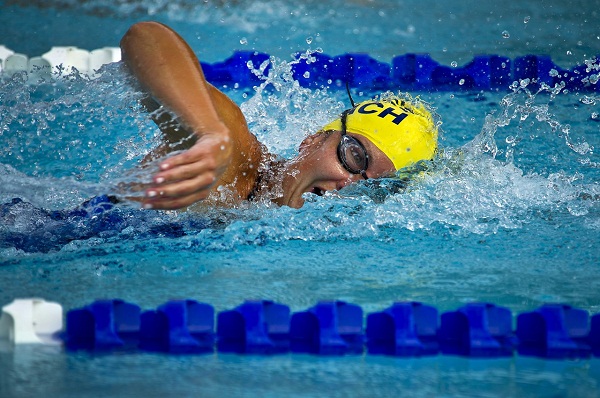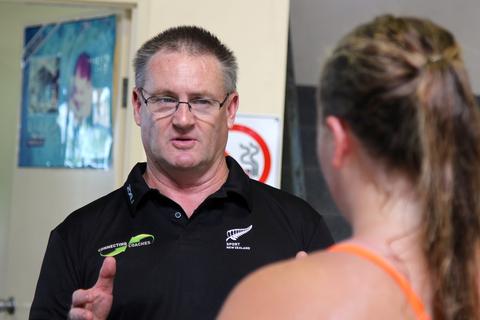Mental Toughness: What is It and How to Coach It

Mental toughness is a really interesting topic in coaching
A lot of coaches will claim that they know what mental toughness is.
Many believe that there’s a way of developing mental toughness.
Coaches talk about mental toughness in broad terms like, “That athlete’s really tough” or “That athlete’s really hard” or “That athlete’s really disciplined” and most coaches see to have a general idea of what mental toughness is.
Having worked with a lot of professional sporting teams and elite level endurance athletes over many many years, my model – my definition – of mental toughness is: “when an athlete can continue to perform their job, to do the job they’ve been trained to do, regardless of what happens to them in training or competition”.
So if they’re a football player, regardless of pain, fatigue, stress, the weather, challenging circumstances – whether they’re winning or they’re losing – they continue to do the job that they were trained to do regardless of what happens to them or what’s happening around them.
Why is this important?
And this is such an important thing because if we have an understandable and a workable definition of what mental toughness is, we can then coach it.
We can then take mental toughness out of the realm of the ethereal and theoretical, i.e. that mental toughness is an abstract concept like “hardness” or it’s “perseverance”, or it’s commitment“, or it’s “dedication”, or it’s “the ability to overcome adversity”. We can make it real.
Once we understand that mental toughness is actually something real – that it’s the capacity of an athlete to do the job they’ve been trained to do regardless of what happens, we can then start to really coach it.
A real life example – Mental Toughness Measured.
I want to share an example of something that I’ve done recently with a professional football team.
I asked the coaching group, “How could I help?”
They said, “Can you help us improve mental toughness?”
I asked them what they believed mental toughness actually was.
Their response was, “Well, a player is mentally tough if they can get a “hit”, i.e. if they can have a collision with another player, get up and move on quickly and perform their role for the team.”
I said, “Well, we can measure that. If that’s what you’re looking for, and if that’s what you think mental toughness is, we can actually measure mental toughness”.
I asked them were there other situations, i.e. other than a collision situation, where they wanted to see a player demonstrate mental toughness, (again remembering that mental toughness is the ability of an athlete to do the job they’ve been trained to do regardless of what’s happening to them).
They said, “Look, where we want to see mental toughness demonstrated is:
- where an athlete has been hit or had a collision with another player;
- where an athlete has missed an opportunity that perhaps they should have converted;
- where an athlete gets a poor decision from an umpire or from a referee or an official;
- where a player has made a mistake, i.e. actually made an error that may’ve let the team down;
- when an athlete’s fatigued………….
they’re the five situations that we want to see an athlete demonstrate mental toughness; demonstrate their ability to do what we’ve trained them to do”.
What we did after that was put in place a series of measurements while the athletes were playing the game.
When we saw one of those any of those five things happen in the game we would flag that on the match video.
We’d then look at what’d happened before and after that particular incident (i.e. which might be a player getting hit, or a player making a mistake, or a player missing an opportunity, or a player getting a poor umpiring or officiating decision against them, or when they get fatigued) and talk to the player after the game and say, “Look, your skill level (or your intensity, or your performance) dropped when one of those things happened.”
By identifying and measuring situations where we needed players to maintain their performance standards we had actually found a way of operationalizing mental toughness in a way that made sense to the coaches and the athletes.
The Good News about Mental Toughness.
The great thing for coaches is this.
In your own sport there will be times and there will be situations where you can see an athlete is no longer doing the job they were trained to do because something has happened to them: similar to the way the football coaches came up with those five examples for us to track and measure.
There will be something that you can identify and measure where you can see the athlete’s performance decrease after something’s happened to them.
And the beauty of that is you can then create training practices and create situations in preparation which can duplicate and mimic competition conditions; you can make training more challenging and more demanding than the competition the athletes are preparing for and, in doing so, enhance the athlete’s mental toughness.
Mental toughness is real. Mental toughness is measurable. Mental toughness is something that can be coached.



0 Comments